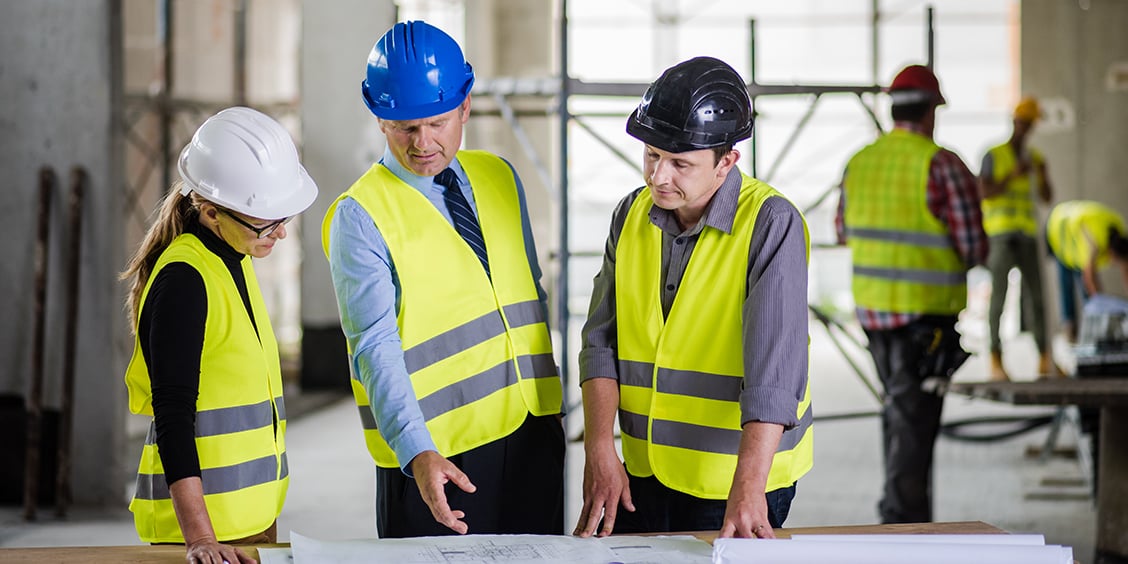Design & Engineering | Industries
Blast Resistant Buildings For Petrochemical Facilities


Petrochemical facilities produce chemicals and derivatives used in a wide range of products, as varied as medical devices and cosmetics. Using heat, pressure, and other engineering techniques, workers turn crude oil and natural gas into six primary petrochemicals – acetylene, benzene, methane, ethane, propane, and hydrogen.
While the petrochemical industry plays an integral role in the global economy, it is also one of the most hazardous environments. At these facilities, workers risk being exposed to accidental chemical releases and unsafe emissions, equipment malfunctions, accidents from falls and machinery, and fires and explosions on worksites.
A critical part of mitigating risk in the petrochemical industry is the presence of blast-resistant buildings and barriers to protect workers. Companies and site managers must invest in blast-resistant structures that have been adequately tested to prevent injuries and save lives.
The Hazards of Petrochemical Facilities
The US Bureau of Labor Statistics collects data on the subfield "Petroleum and Coal Products Manufacturing." The most recent data from 2020 shows that the industry had 1.2 recordable work-related injury and illness incidents per 100 workers, with three fatalities that year. For reference, the logging industry (statistically one of the most dangerous) had 2.4 recordable cases per 100 workers that year (with 63 fatalities).
The petrochemical industry is no stranger to catastrophic accidents, especially as demand for output increases. For example, on March 23, 2005, an explosion at an oil refinery in Texas City, Texas, injured 170 people and took the lives of 15 workers. In another catastrophe, a chemical plant near Lake Charles, Louisiana, experienced a flash fire in 2021 that injured 22 people and an ethylene dichloride tank explosion in 2022, injuring six workers. These incidents can cause severe burns and chemical inhalation that can change someone's life.
Exposure to petrochemicals can cause allergies, ulcers, cancer, and liver and kidney disease. The accidental ignition of gases causes pool fires (caused by the leakage of flammable liquids) and extremely dangerous jet fires. Jet fires occur when a vessel or gas line gets ruptured, and they can burn at up to 2000 degrees F.
The best protection against these hazards is steel structures with modifications such as intumescent coatings, which can act as an insulator to workers inside the frame.
The Perks of blast resistant buildings
While OSHA requires petrochemical companies to take measures to protect employees, they don't maintain criteria for blast-resistant buildings. However, the American Society of Civil Engineers (ASCE) Petrochemical Energy Committee maintains guidelines on constructing blast-resistant buildings for these unique worksites. The American Petroleum Institute's API 752 covers best practices in their construction and installation.
RedGuard's blast-resistant buildings have been used for nearly two decades at petrochemical facilities. Not only do they provide superior protection, but companies concerned with worker comfort and safety can customize modular units. RedGuard's steel blast-resistant buildings come at a reasonable cost and can be built far more quickly than concrete buildings, which is one of the reasons they're so popular in the petrochemical industry.
And most importantly, they save lives.
Protect Your People
The goal of a blast-resistant building is to mitigate the risks to people and property in an explosion or fire. Protecting workers from even minor injuries is good ethics and good business.
The petrochemical industry is unique because there is always a risk of explosions due to the nature of the materials involved. Industry leaders are responsible for preventing these types of accidents by improving facilities and employee training, but that doesn't eliminate the need for a safe haven on-site where workers can do their jobs with peace of mind.
By taking steps to reduce traumatic injuries, companies also limit their liability, reducing their risk of having to pay hefty compliance fines, medical and worker's compensation bills, and lawsuit payments.
give workers peace of mind
It's no secret that worker safety and productivity go hand in hand, giving new meaning to "safety first." A 2020 study found that working conditions influence turnover rates, absenteeism, productivity, and healthcare costs.
The mere presence of a world-class, proven-safe, blast-resistant building can be a psychological benefit to employees. Seeing that an employer has invested in their ability to work on-site safely can help companies retain skilled employees. That's just one of the reasons RedGuard has buildings blast tested by third-party engineers for an objective analysis of their performance.
Protect your assets
Explosions can also cause significant damage to infrastructure and machinery, both of which are particularly costly in the petrochemical industry. And any time a replacement or repair is required, it's likely going to need to meet even more stringent standards and undergo safety testing, leading to lost work time. That makes investing in blast-resistant structures up-front the safest and most cost-effective strategy.
Things can be replaced (even if they're costly), but human lives cannot. It only takes one accident to wreak havoc on a work crew. And in the petrochemical industry, explosions are often so hazardous that they don't stay confined to a job site-they can also affect nearby residents. While safety and maintenance are the first lines of defense to protect everyone nearby, investment in a safety-tested blast-resistant building can be a crucial line of defense for those nearest to potential disasters. That's why RedGuard makes the safety of your team its highest priority.
RedGuard Sales & Marketing
The RedGuard sales and marketing team curates and writes on a variety of topics regarding blast-resistance and modular buildings. To inquire about any of the topics you read about on our blog, connect with us.


